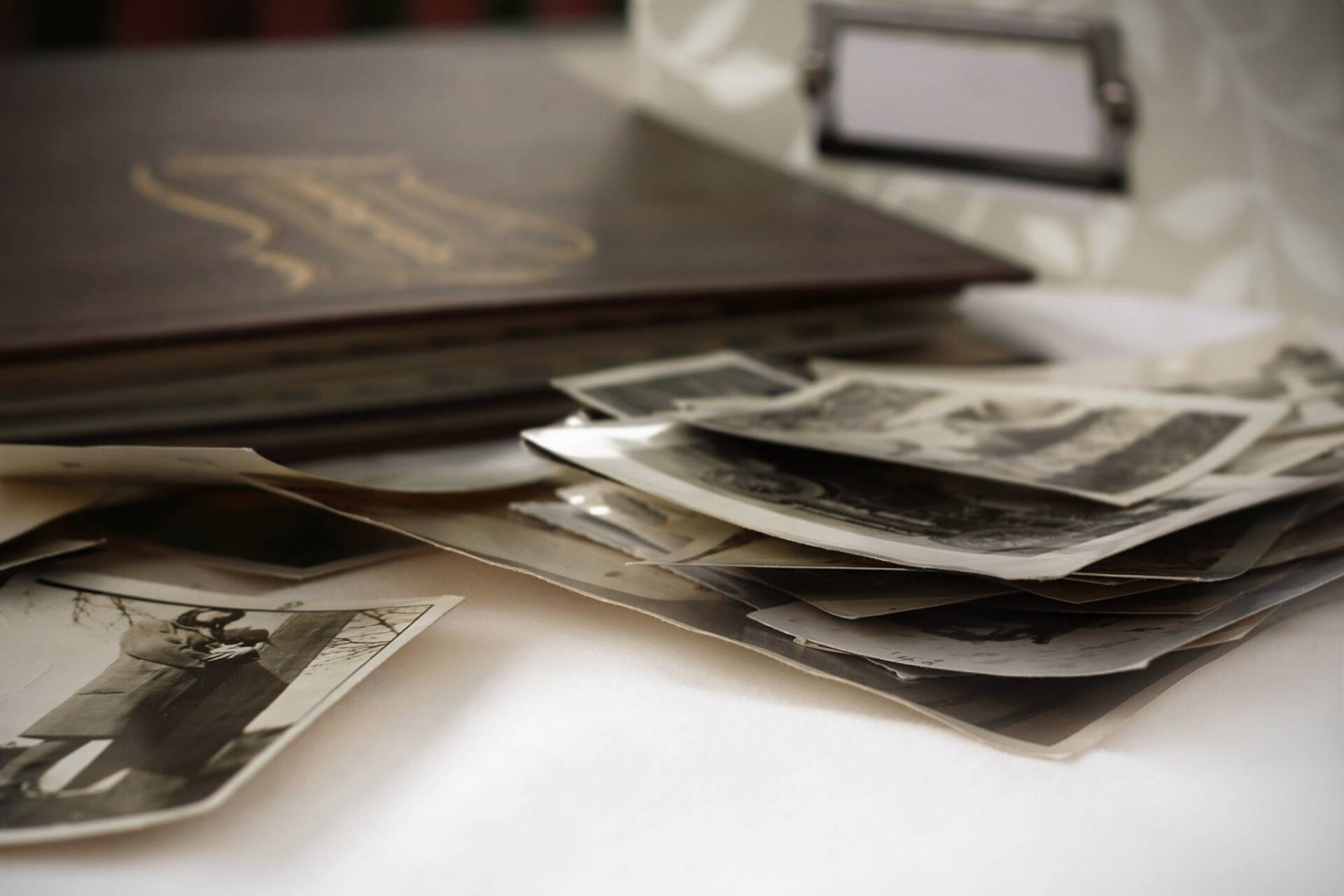Discovering your Irish roots is a fascinating journey filled with culture, history, and personal connections. This comprehensive guide will walk you through the essential steps for starting your Irish genealogy research, providing a detailed roadmap to uncover your ancestors’ stories. Along the way, you’ll learn about Irish history, key resources, and expert strategies for a successful genealogical adventure.
Understanding Irish History and Its Impact on Genealogy
The Importance of Irish History in Genealogy Research
A solid understanding of Irish history is crucial for successful genealogy research. Familiarizing yourself with key historical events, social and political changes, and cultural aspects will help you better interpret records, recognize patterns, and appreciate the context of your ancestors’ lives.
Key Historical Events That Shaped Irish Genealogy
- The Norman invasion of Ireland (1169)
- The Tudor conquest of Ireland (16th century)
- The Cromwellian conquest of Ireland (1649-1653)
- The Williamite War in Ireland (1688-1691)
- The Great Famine (1845-1852)
- The Irish War of Independence (1919-1921)
- The Irish Civil War (1922-1923)
These events often led to changes in land ownership, population shifts, and record-keeping practices, all of which impact genealogical research.
Understanding the Irish Diaspora
The Irish diaspora refers to the migration of Irish people to other countries. The Great Famine, economic hardships, and political unrest led millions of Irish people to emigrate, primarily to the United States, Canada, Australia, and Great Britain. Understanding the causes and patterns of migration can help you trace your Irish ancestors back to their homeland.
Identifying Your Irish Ancestors: Gathering Preliminary Information
Conducting Family Interviews
Begin your research by interviewing family members, especially older relatives who may have stories, memories, or knowledge of your Irish ancestors. Take notes or record conversations to ensure accuracy.
Organizing and Analyzing Your Family Tree
Create a family tree using genealogy software or a simple chart. Fill in as much information as possible about your Irish ancestors, including names, dates, and places. This will help you identify gaps in your knowledge and guide your research.
Locating Family Documents and Heirlooms
Search for family documents, such as birth certificates, marriage licenses, and wills, as well as photographs, letters, and other heirlooms. These items can provide valuable information and clues about your Irish ancestors.
Identifying Key Irish Ancestors: Names, Dates, and Places
As you gather information, focus on identifying your key Irish ancestors, their names (including variations), birth and death dates, and places of residence in Ireland. This information is essential for locating Irish records and tracing your lineage.
Utilizing Irish Civil Registration Records
Understanding Irish Civil Registration
Civil registration in Ireland began in 1845 for non-Catholic marriages and in 1864 for all births, marriages, and deaths. These records are vital for genealogy research, as they provide key information about your ancestors.
Researching Irish Birth Records
Irish birth records typically include the child’s name, birth date and place, parents’ names, and the father’s occupation. Use this information to trace your ancestors and locate additional records.
Investigating Irish Marriage Records
Marriage records contain the names of the bride and groom, their ages, residences, occupations, and the names of their parents. These records can help you connect different branches of your family tree and uncover new ancestral lines.
Analyzing Irish Death Records
Death records often provide the deceased’s name, age, occupation, cause of death, and place of burial. This information can help you locate burial records and confirm family relationships.
Online Resources for Irish Civil Registration Records
Many Irish civil registration records are available online through websites such as:
- IrishGenealogy.ie
- FamilySearch.org
- Ancestry.com
- FindMyPast.com
Exploring Irish Census Records
The Significance of Irish Census Records in Genealogy
Census records are an essential source for genealogists, as they provide a snapshot of families at specific points in time. Unfortunately, many Irish census records were destroyed in a fire at the Public Record Office in 1922. However, some records still exist and can be valuable for research.
Key Irish Census Records and Their Availability
The earliest surviving complete Irish census records are from 1901 and 1911. Partial records and census substitutes, such as tax records and land valuations, can also be useful for research.
How to Access Irish Census Records
Irish census records can be accessed online through the National Archives of Ireland and other genealogy websites. Keep in mind that availability may vary, and not all records may be digitized.
Using Census Substitutes for Missing Irish Census Records
Due to the loss of many Irish census records, researchers often rely on census substitutes, such as:
- Griffith’s Valuation (1847-1864)
- Tithe Applotment Books (1823-1837)
- Land and property records
- Voter lists and tax records
Navigating Irish Church Records
The Role of Irish Church Records in Genealogy
Church records, including baptism, marriage, and burial records, are essential for tracing your Irish ancestors before civil registration began. The majority of Irish people were Catholic, but other denominations, such as Church of Ireland, Presbyterian, and Methodist, also kept records.
Identifying Your Ancestors’ Religious Affiliation
It’s important to determine your ancestors’ religious affiliation, as records were kept separately by different denominations. Family stories, census records, and civil registration records can provide clues about your ancestors’ religion.
Accessing Irish Catholic Records
Catholic records, particularly baptism and marriage records, can be found in parish registers. Some records are available online through websites like the National Library of Ireland, while others may only be available in local parish archives.
Researching Irish Protestant Records
Protestant records, including those of the Church of Ireland, Presbyterian, and Methodist denominations, can be found in various repositories, such as the Representative Church Body Library, the Presbyterian Historical Society, and the Methodist Historical Society. Some records are also available online through websites like RootsIreland.ie and Ancestry.com.
Online Resources for Irish Church Records
Some key online resources for Irish church records include:
- National Library of Ireland
- RootsIreland.ie
- Ancestry.com
- FindMyPast.com
Delving into Irish Land and Property Records
The Importance of Land and Property Records in Irish Genealogy
Land and property records can provide valuable information about your ancestors’ residences, occupations, and social status, as well as help you identify family relationships and trace property ownership through generations.
Utilizing Griffith’s Valuation
Griffith’s Valuation, conducted between 1847 and 1864, is a crucial resource for Irish genealogy, providing information on landowners and tenants, property values, and locations. This resource can help you identify your ancestors’ residences and potentially connect with other family members.
Investigating Tithe Applotment Books
Tithe Applotment Books, compiled between 1823 and 1837, list landholders and the amount of tithes they paid to the Church of Ireland. These records can provide insights into your ancestors’ land ownership and economic status.
Exploring Estate Records and Maps
Estate records and maps can provide information on land ownership, tenant names, and property descriptions. These records may be available through local archives, libraries, or online resources like the National Archives of Ireland.
Online Resources for Irish Land and Property Records
Key online resources for Irish land and property records include:
- AskAboutIreland.ie (Griffith’s Valuation)
- National Archives of Ireland
- PRONI (Public Record Office of Northern Ireland)
- IrishAncestors.ie
Leveraging Irish Newspapers and Periodicals
The Value of Newspapers and Periodicals in Irish Genealogy
Newspapers and periodicals can provide valuable information about your ancestors’ lives, including birth, marriage, and death announcements, local news, and social events. They can also help you understand the historical context of your ancestors’ lives.
Identifying Relevant Irish Newspapers and Periodicals
Start by identifying newspapers and periodicals published in the areas where your ancestors lived. Local libraries and archives may have collections of these publications.
Searching for Ancestor Information in Newspapers and Periodicals
Search for your ancestors’ names and any variations, as well as relevant dates and places. Keep in mind that spelling inconsistencies and abbreviations were common in historical newspapers.
Online Resources for Irish Newspapers and Periodicals
Many Irish newspapers and periodicals have been digitized and are available online through resources such as:
- IrishNewspapers.com
- BritishNewspaperArchive.co.uk
- FindMyPast.com
- National Library of Ireland
Accessing Irish Military and Immigration Records
The Role of Military Records in Irish Genealogy
Military records can provide information about your ancestors’ service, including their rank, unit, service dates, and locations. These records can also help you understand the broader historical context of your ancestors’ lives.
Researching Irish Military Records: Key Resources
Key resources for researching Irish military records include:
- The National Archives (UK)
- The National Archives of Ireland
- The Military Archives (Ireland)
- The Public Record Office of Northern Ireland (PRONI)
Understanding Irish Immigration Records
Immigration records can provide important information about your ancestors’ journey from Ireland to their new homes, including their departure and arrival dates, ports, and destinations.
Tracing Your Ancestors’ Journey: Key Immigration Records
Key immigration records for tracing your Irish ancestors include:
- Passenger lists
- Naturalization records
- Emigration records
Online Resources for Irish Military and Immigration Records
Many military and immigration records are available online through resources such as:
- Ancestry.com
- FindMyPast.com
- FamilySearch.org
- National Archives of Ireland
Visiting Irish Archives and Libraries
The Importance of In-Person Research in Irish Genealogy
While many resources are available online, some records can only be accessed in-person at Irish archives and libraries. Visiting these institutions can provide valuable insights and access to unique resources.
Key Irish Archives and Libraries to Visit
Some important Irish archives and libraries for genealogy research include:
- National Archives of Ireland
- National Library of Ireland
- The Public Record Office of Northern Ireland (PRONI)
- The Military Archives (Ireland)
- The Representative Church Body Library
- Local libraries and county archives
Preparing for Your Visit: Research Tips and Strategies
Before visiting an archive or library, make sure to:
- Familiarize yourself with their collections and catalogues
- Identify the specific records you want to access
- Verify the institution’s hours, location, and any fees
- Contact the institution in advance to ensure the records you need are available
- Bring a notebook, pencils, and a camera or smartphone to document your findings
Making the Most of Your Visit: Networking and Collaboration
During your visit, take the opportunity to network with other researchers, librarians, and archivists who may have valuable insights or expertise related to your research. Attend workshops, conferences, and events hosted by the institution to expand your knowledge and connect with the genealogy community.
Online Resources for Irish Archives and Libraries
Many Irish archives and libraries have online catalogues and resources, such as:
- National Archives of Ireland
- National Library of Ireland
- The Public Record Office of Northern Ireland (PRONI)
- The Military Archives (Ireland)
Connecting with Irish Genealogy Communities
The Value of Networking in Irish Genealogy Research
Networking with fellow genealogists and experts can provide valuable insights, advice, and support throughout your research journey. Connecting with others who share your passion for Irish genealogy can also lead to new friendships and collaborative research projects.
Joining Irish Genealogy Societies and Organizations
Genealogy societies and organizations, such as the Irish Genealogical Research Society, the Irish Family History Society, and regional genealogy groups, offer resources, events, and networking opportunities for members.
Participating in Irish Genealogy Forums and Social Media Groups
Online forums and social media groups dedicated to Irish genealogy can be a valuable source of information, advice, and support. Join these communities to connect with fellow researchers, ask questions, and share your discoveries.
Attending Irish Genealogy Conferences and Workshops
Conferences and workshops, such as The Genealogy Event or Back To Our Past, offer opportunities to learn from experts, network with other genealogists, and stay up-to-date on the latest research techniques and resources.
Online Resources for Irish Genealogy Communities
Key online resources for connecting with the Irish genealogy community include:
- Irish Genealogical Research Society
- Irish Family History Society
- Genealogy forums like RootsChat.com and Boards.ie
- Social media groups on Facebook, such as “Irish Genealogy” and “Tracing Your Irish Roots”
By following these essential steps and utilizing the resources provided in this comprehensive guide, you’ll be well on your way to uncovering the fascinating stories of your Irish ancestors. Happy researching!






Leave a reply